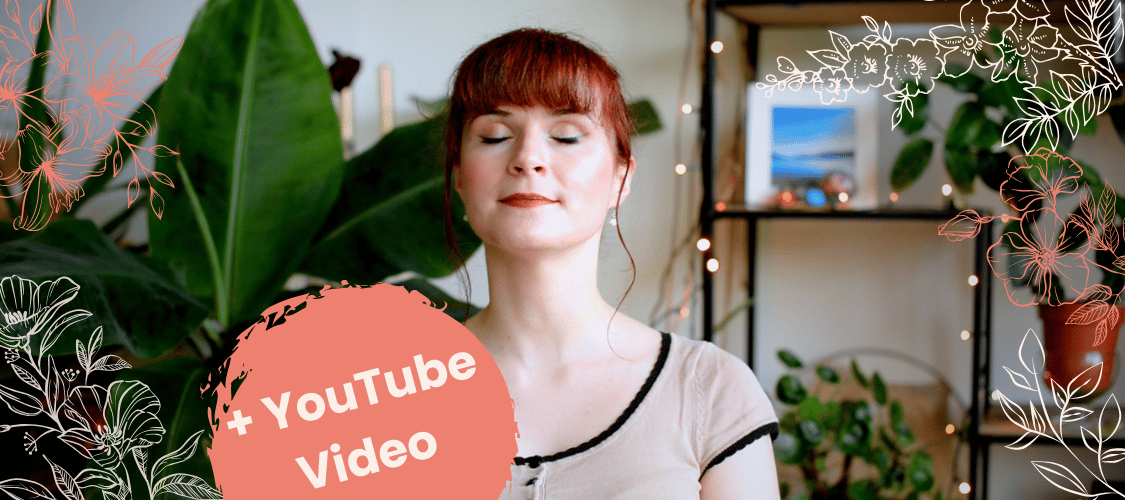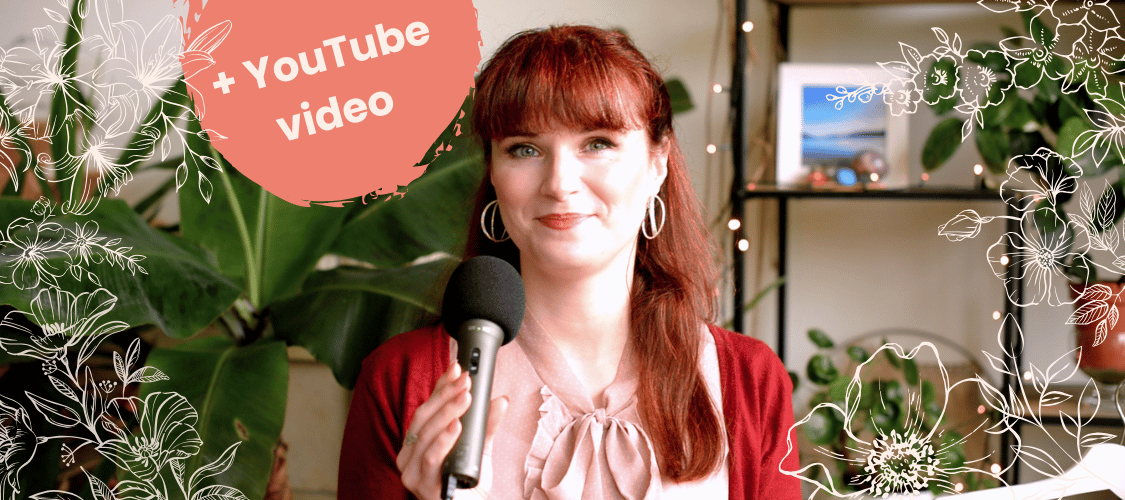Why doesn’t other people’s advice work for you? Even when it comes from intelligent people you admire, smart influencers, or people who seem wiser? If you’ve watched countless videos to tackle a psychological, spiritual, or developmental problem, yet no real, lasting change has occurred in your life, then this video is for you. We’ll dive into why online advice fails this happens and how to fix it.

Watch the Featured Video – Why Online Advice Fails You (And What to Do Instead)
It Can Be Frustrating
This can be such a frustrating experience—you think you’ll finally improve your life, things resonate with you for a while or you get a temporary spike of motivation but you keep slipping back into the same old patterns. We first must identify these patterns.
Change is not something you do from a place of hate for yourself. Real transformation starts with the acceptance of who you are, and grows from the love you have for yourself.
Let’s break down why online advice fails you and find ways to eliminate these issues once and for all so that we don’t have to seek external advice anymore.

Why Other People’s Advice Doesn’t Work for You
Let’s start with why advice doesn’t work for you. I’ve come up with six reasons, and I think all of them applied to me at some point in my development. Sometimes we aren’t highly motivated and we slack a little, and that’s okay—nobody’s perfect. But let’s dive into why the advice you seek, whether online or from people in your circles, doesn’t bring the results we hope for. These concepts fit beautifully with radical acceptance.
1. You haven’t fully defined what you want
Sometimes online advice fails because you haven’t clearly identified your own goals or desires. When you’re unclear about what you want, any advice can feel confusing or ineffective. People may offer advice that actually pushes you further away from what would truly make you happy, simply because you haven’t yet decided what that is. The answers you need are already within you, but you lack self-trust and don’t listen to your own intuition. You seek input from others and outsource decision-making, but only you truly know the answer.
When people give you advice, your first gut instinct is often the best guide. But instead of trusting it, you might ignore it and take others’ words at face value, overthinking until their advice feels like the best option simply because of the authority you give them and the repetition of what they said in your head. But it wasn’t your choice—you ignored your own inner voice. Instead of outsourcing your decisions to others, take a moment to listen to your gut instinct. Your initial reaction is usually your best advisor.
2. The advice doesn’t apply to your current stage
You might be taking advice from people who are further along in their development, but their guidance is based on where they are now, not where you are. They may never have been in your shoes, offering advice on experiences they haven’t personally faced. Or, if they have, they might have forgotten what it was like to be at your stage. Either way, spare yourself the frustration by seeking advice from those who addressed similar challenges when they were at your level, rather than applying advice you’re not ready for yet.
3. People give advice they would give themselves
They give you advice based on their own lives and experiences—advice they would give to themselves. Even if the advice is good, it might not be the right time for you to apply it. Sometimes advice doesn’t resonate because you’re not ready to hear it, or it’s relevant to a situation you haven’t yet encountered. Timing plays a crucial role in whether advice will be useful or simply ignored.
People often give us the advice they wish they’d given themselves when they were in your position. They may be driven by fear or carry regrets and self-resentment about how they’ve lived their own lives. Remember, someone else’s fear or regrets don’t have to become your own. We often absorb fears of our parents, so we live with fears that aren’t even ours. If advice doesn’t resonate, it might be because it’s coming from a place of fear or self-limitation, not genuine guidance.
Read more about how you can help you identify your limiting beliefs.
4. You’re not taking any action
Consuming content without taking any steps to apply it leads to procrastination. Some things can’t be taught; they must be experienced. For instance, you can read or watch videos on meditation all day, but you won’t feel the benefits until you actually sit down and meditate. I noticed that the more content I consume, the less I feel like creating my own content. Stop procrastinating through education and start taking action, no matter how small.

5. Lack of personal alignment
The advice given may not align with your values, beliefs, or goals. When people offer advice, they do so from their own perspective, which might not reflect your unique priorities or the way you see the world. Even well-meaning advice can feel irrelevant or unhelpful if it doesn’t resonate with who you are and what you truly want to achieve. Before following any advice, ask yourself: does this align with my values and what I truly want? Not everyone online gives good advice for your situation and this is why online advice fails you.
6. Misinterpretation of the advice
Sometimes advice can be misunderstood or misinterpreted. What the person meant and what you heard may not align. Communication gaps or assumptions can lead you to apply advice incorrectly or in a way that doesn’t work for your circumstances. Instead, clarify advice and reflect on how it applies to your unique circumstances before taking action.
So What to Do Instead?
I think you already understand that I’m generally against asking people for advice, especially those in our circles. No one has all the information or emotional context needed to make a decision for you. Only you can decide for yourself. Sometimes, asking many people about the same issue just to hear their perspective can further confuse you. I’m more in favour of leading a private life, tuning into your own intuition, and taking action before sharing it with others, as I explained in my video, Why Private Life is a Better Life. It protects you from the evil eye, your own doubts and limiting beliefs of others being projected onto you. You really don’t need this kind of energy when you’re in a vulnerable place of making important decisions
Seeking help online through blogs or videos can be useful, but only to offer new perspectives—not to replicate someone else’s decisions in a similar situation. Treat these as a confirmation of what resonates with you after you’ve made a decision, but remember that every person and circumstance is different, so always decide based on your own gut feeling.
Now, let’s dive into what you can do instead of constantly seeking advice or getting stuck in procrastination through content consumption. Be honest with yourself and fully commit to the process; otherwise, you’ll end up with the same old results as you did in the past..

1. Know your why
Figure out your desires. Start by understanding your deeper motivation. Why are you searching for advice? Why did you click on this particular video? Get real with yourself—what are you truly hoping to change? Knowing your “why” is the foundation of lasting progress. Be honest and authentic. Don’t pursue change to impress others or because it’s trending. Do it for you and your own happiness.
* ACTIONABLE TIP *
Write down your motivations and reflect on them regularly. The clearer your “why,” the easier it is to stay on track.
2. Limit your content consumption
Take control of your time. If you find yourself endlessly consuming videos, podcasts, or articles without taking action, try a week-long content detox. Pause the intake and start executing. This forces you to apply the knowledge you already have instead of always searching for more. When I did that for the first time, things got a bit ugly so you can expect sudden fears, limiting beliefs, and ego backlash to come and check-in and sabotage you a little. It’s a test. Approach this as the future version of you with confidence and deal with these emotions as I instructed in the video You’re not too emotional.
* ACTIONABLE TIP *
Set specific times to watch educational content, but make sure it’s balanced with actual implementation. Try to have a 1:1 ratio—spend as much time applying the information as you do consuming it.
3. Get Clear on Your Destination
It’s impossible to move forward without knowing where you want to go. Imagine trying to sail without a destination—you’d be lost at sea! Journaling is one of the best tools to help you clarify your desires. If you don’t know where to begin, start by asking yourself: How do I want my ideal day to look? What do I want to do in the morning, afternoon, and evening? Who do I want by my side? How do I want to feel? What kind of person do I want to show up as? Based on your answers, you’ll start seeing patterns that reveal what kind of life you want to create.
* ACTIONABLE TIP *
Journal every day for 5-10 minutes. Over time, you’ll gain clarity on your true desires and the steps you need to take to reach them. Don’t judge what comes up. Your desires are not too big, be authentic with yourself about what you really want, even if it seems big at first. But don’t suppress what you truly want. It’s as bad as suppressing your emotions – they come back and bite harder.
4. Start Small, Build Momentum
When figuring out your desires – go as big as you want and don’t refine yourself. But big dreams can feel overwhelming and small, achievable steps are the building blocks of real change. Don’t aim to climb the whole mountain at once—take it one step at a time, compounding small adjustments into big changes. Reward yourself when you reach mini-goals. Celebrating progress reinforces positive habits and keeps you motivated.
* ACTIONABLE TIP *
Set three small goals for the week that align with your bigger vision. Reward yourself with something you enjoy once you complete them. You can ask yourself regularly: what is the smallest step I can take now that will bring me a bit closer to my goal? When facing a decision, ask yourself: will this get me closer to my goal or is it just a distraction? When you’re unsure, choose what feels more enjoyable at the moment.
5. Build Self-Trust and Listen to Your Intuition
This is key—if you don’t believe in yourself, you’ll continue to doubt every decision and constantly seek validation from others. Decide right now that this is your time. Make a conscious commitment to yourself and your growth. This is what it means to be loyal to yourself. When you build self-trust, you stop relying on external advice and start trusting your intuition more.
Video Build Habits That Last.
* ACTIONABLE TIP *
Write down three non-negotiable promises to yourself and commit to keeping them daily. These can be small habits or actions that build your self-trust. Watch the video I’ve linked on building habits for more guidance.
Conclusion
Online advice often fails to bring lasting change because it doesn’t align with our personal needs, values, or stages of growth. While seeking external guidance, we often overlook our most powerful resource—our own inner voice. Advice from others, no matter how insightful, can only go so far if we don’t have a clear understanding of who we are and what we truly want. The answers we seek are within us, but we tend to outsource decision-making to others, ignoring our intuition in the process. Real growth happens when we stop relying on outside validation and begin to trust our own instincts, allowing us to chart a path that resonates with our true self.
Ultimately, the key to personal transformation lies in self-awareness and self-trust. By observing our emotions, thoughts, and actions with impartiality, we tap into the awareness of being, which is our true nature. When we start listening to our intuition and take ownership of our decisions, we stop being passive consumers of advice and become active creators of our lives. The journey of growth isn’t about mimicking others; it’s about aligning with who we are at our core and embracing the wisdom that already resides within.
Recommended next post to read:
A 5-STEP GUIDE HOW TO MAKE THE MOST OF YOUR SINGLEHOOD
WHAT CAN JEALOUSY TEACH YOU ABOUT YOURSELF
HOW TO WORK ON YOUR SELF-CONCEPT FOR LOVE








